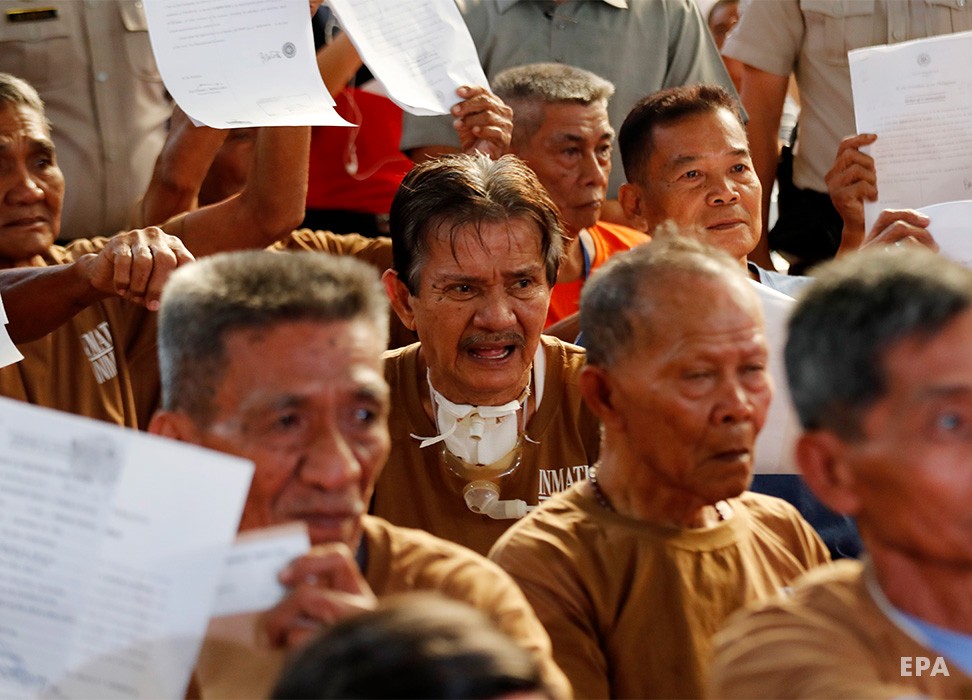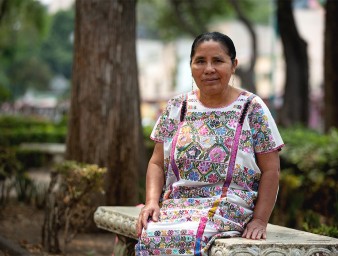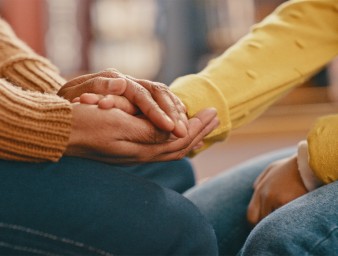Protecting the rights of older persons deprived of liberty
28 September 2022

“Ageism and age discrimination are underlying to most situations of deprivation of liberty for older persons,” said Claudia Mahler, UN Independent Expert on the enjoyment of all human rights by older persons. “Ageist attitudes are persistent worldwide, leading to discriminatory laws, policies, and practices that hinder the right of older persons to personal liberty.”
Mahler was speaking at the Human Rights Council in Geneva where she presented her latest report in which she examines what deprivation of liberty means for older persons and how it affects their human rights. Her report also analyses some of the reasons why older persons are deprived of liberty, and highlights the human rights challenges and risks in specific contexts, namely criminal justice, immigration-related detention, and care settings.
“As a heterogeneous group, older persons are not all equal when facing deprivation of liberty. Older age often combined with socioeconomic factors, such as poverty and lower levels of formal education, might have a correlation with the likelihood for someone committing an offence,” Mahler said.
The expert pointed out further that, although the right to personal liberty is not absolute under international human rights law, it remains a core human right in older age. She also stressed that such deprivation of liberty should adhere to human rights standards by being justified, proportionate, non-discriminatory and as a result of due process.
Contexts of deprivation of liberty of older persons
Mahler explained that older persons may be considered as being deprived of their liberty when they are confined to a specific space or institutionalised without permission to leave at will, against their wishes or without their free and informed consent.
The expert reminded States that, in the criminal justice context, they should ensure that older persons are treated with dignity during their detention as well as take into consideration their specific needs, in regards to their age, disability status and health.
Mahler added that detention in the context of migration should be a last resort also stressing that it should “be applied on a legitimate basis. Failure by States to provide special care and assistance to older persons detained in this context may render their detention unlawful.”
Further, the expert highlighted that, in the context of care, States should take appropriate measures to protect older persons’ liberty, including in private health facilities and care homes.
“Though older age must not be considered as a ground for the limitation of rights, the autonomy and independence that older persons enjoyed earlier in life are often denied in their older age,” Mahler added. “The right to personal liberty for older persons must be understood in the context of a person’s right to autonomy and independence.”
Avenues for greater protection of older persons deprived of liberty
Regretting the scarcity of data on older persons deprived of liberty, added to the lack of laws and policies to implement mechanisms to assess their situations, Mahler cautioned that the lived experiences of older persons deprived of liberty will remain unknown.
“Given the absence of an international comprehensive human rights instrument on older persons, national legal and policy frameworks fail to effectively address the specific needs of older persons,” she said. “Laws, especially “mental health laws” or “safeguard laws” that apply to care settings, such as care arrangements of older persons living in their own home, with their families or within their communities, must respect older persons’ autonomy and independence.”
The expert identified alternative solutions to deprivation of liberty for older persons including, in the criminal justice context, house arrest or early conditional release based on their age, time served and health status.
In care settings, Mahler advised developing care arrangements through financing in order for older persons to reside in the place of residence of their choice. “While for many older persons family care is preferred, adequate, affordable and quality parallel support services should be provided to family members and informal caregivers to prevent any deprivation of their liberty,” she said.
The expert further recommended independently monitoring places of deprivation of liberty and ensuring access to justice for older persons’ in case of violation of their human rights.
“States have an obligation not only to prevent and punish human rights violations in State-managed institutions, but also to take all necessary measures to protect older persons from violations of such rights by non-State actors,” Mahler stressed. “They must investigate allegations of violations on older persons, including of the right to life, arbitrary detention and torture and other ill-treatment. Investigations should be effective, prompt, thorough and impartial.”



